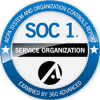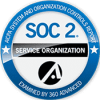There is broad uncertainty about the evolving future of US health care reform initiatives. Multiple sides are lining up to address the challenges and opportunities presented by the Affordable Care Act (ACA). Some believe that it needs replacement, while others think that it can and should be modified and salvaged. However, regardless of the political affiliations and strategic priorities, most agree that there is a significant need to promote value based care. This approach recognizes that current health care costs are not sustainable, and new care management approaches must be deployed to contain spending and improve health outcomes.
Recent improvements in health information technology have supported care that is provided within the walls of a health care provider’s offices. While electronic health records (EHRs) can inform individual clinical practice, they fall short in their ability to span the full spectrum of providers and services that impact the care and health outcomes of broader populations. Primary care physicians (PCP) lead care teams, yet they cannot effectively coordinate the flow of planning and service information among the providers and systems including health care, social services, and community resources that influence patient well-being and health outcomes.
Another challenge that impacts the coordination of care and effective health outcomes is the integration of both physical and behavioral health conditions and services. Value based care requires not only the integration of all health conditions and services, but also includes the social and community determinants that impact well-being. This is achieved through care coordination tools and resources that link all care team members including patients and their care givers, in effective work flows that address problems, goals, and outcomes.
Provider systems intending to increase their care coordination services and deliver value based care require resources and supports that go beyond the capacity of their current electronic health records and office based practice systems. Innovative information technology tools and resources are available to support care coordination and promote value based care. These systems provide a platform that can coordinate care among different providers of health services, integrate social and community service providers, and support others who promote effective health outcomes.
Effective care management technology resources include tools that support individual and population based assessments and health risk appraisals; the development and tracking of care plans and health goals; and, the integration of care across and among different provider systems and community resources. Additionally, contracting for value base reimbursement requires technology solutions capable of encounter based tracking among multiple providers and services, the adjudication of services provided across these care systems, and health outcomes reconciliation.
As health service delivery and reimbursements continue to evolve, there will be a continued focus on improved population health outcomes and cost effective services.
These are achieved through the implementation of care management programs supported by technology tools that can also support value based care contracting and reimbursement. Additional resources for systems transitioning to value based care are available in the InfoMC March 2016 Issue Brief Using Information Technology Solutions to Chart the Pathway to Value-Based Contracting and Population Health Management.








